India's Landmark Cultivated Fish Project, Halal Cultivated Meat, and Microalgae-Based Human Milk
Also: Food tech funding needs a complete overhaul
This is the 50th issue of the weekly newsletter, and it also marks the newsletter's first birthday! 🥳
This newsletter started as a way for me to find more people interested in food tech and alt protein. Given that the food tech/alt protein industry is niche, and considering Hong Kong is not exactly known for food innovation, it wasn't easy to find people around me who cared about these topics to geek out on.
So, through the newsletter, I started sharing summaries of the content I consumed, mainly focused on biotech-enabled food innovations. My intention was to expand my 'luck surface area' and increase the chance of finding more people with similar interests to me.
One year on, the newsletter has fulfilled its purpose wonderfully. I’ve had the honour of connecting with some amazingly passionate individuals across the food tech spectrum - from founders and investors to scientists and marketers - all driven by the mission to improve our food system.
Along the way, my knowledge (although just a fraction of what’s out there) about the industry has deepened far more than I could have imagined over the past 12 months.
Thank you for your support! Excited for what the next year brings! 🫡
BIO BUZZ
🇮🇳 First in India: The Central Marine Fisheries Research Institute partner with Neat Meatt Biotech to develop cultivated fish
The project addresses rising seafood demand while reducing the strain on wild resources by creating cultured fish that matches the flavour, texture, and nutritional content of conventional fish, starting with high-value species like kingfish, pomfret, and seer fish.
CMFRI will work on the early stages of cell line development, genetic, biochemical, and analytical research. Neat Meatt will optimise cell growth media, develop scaffolds or microcarriers for cell attachment, and establish a platform for commercial-scale operations.
This public-private partnership seeks to position India alongside countries like Singapore, Israel, and the USA in cultured seafood research, paving the way for significant environmental and food security benefits.
🍼 Checkerspot develops human milk fat (OPO) analogue using microalgae fermentation
This breakthrough aims to better replicate the complex fatty acid profile and triglyceride structure of human milk, overcoming the limitations of conventional vegetable oils used in infant formulas.
The company's technology allows for the precise esterification of fatty acids at specific positions on the glycerol backbone, producing a new generation of OPO (Oleic-Palmitic-Oleic or sn-2 palmitate) for infant nutrition. sn-2 palmitate is a structured triglyceride that mimics the fat and oil content of human milk.
Existing infant formulas struggle to match natural human milk's sn-2 palmitate levels. Checkerspot's method notably achieves higher sn-2 palmitate levels, reaching 73% of total palmitic acid.
🇩🇰 21st.BIO is offering access to its advanced precision fermentation technology platform to F&B ingredient manufacturers
The Danish bioproduction company states it has the industry's most sophisticated precision fermentation technology, partly licenced from Novonesis (a Novozymes and Chr. Hansen Holding merger). This technology, honed over decades, is tailored for large-scale food-grade ingredient production.
The service aims to support the production of sustainable, animal-free dairy proteins, catering to various ingredient manufacturers, from startups to industry leaders, and offering cost-effective solutions for developing these proteins.
The platform offers comprehensive services, including high-quality production strains, support for scaling up processes, assistance with technology transfers, and help in securing regulatory approvals. It is also tailored to meet each customer's specific needs, from nutritional fortification to texture enhancement.
🇨🇭 Fork & Good conducted the first-ever blind tasting of hybrid cultivated meat in Davos
Participants were presented with two dishes, one containing 100% conventional pork and the other a blend of 30% cultivated and 70% conventional pork. More than half of the group preferred the 30/70 blend over conventional meat.
The blind tasting revealed that participants could not tell a major difference between the two samples. An informal poll showed an equal split among participants when asked to guess which dish contained cultivated meat.
The tasting included participants from various backgrounds, highlighting the diverse appeal of the hybrid cultivated meat. Feedback from the eclectic group, ranging from an American professor to a regular Swiss person, would be useful for the ongoing product development of Fork & Good.
🇪🇺 EU-funded research program “FEASTS” aims to promote cultivated meat and seafood as a future protein production method
Fostering European Cellular Agriculture for Sustainable Transition Solution (FEASTS) aims to gather unbiased information and technological knowledge to establish a sustainable production framework for cell-based meat.
FEASTS comprises 36 independent institutions from 17 countries, including universities, research institutes, startups, business accelerators, consultants, food innovation initiatives, farmer and aquafarmer representatives, and a consumer association.
The program uses dynamic system models to understand the multi-dimensional impact of cellular agriculture on the environment and the food value chain. This includes addressing knowledge gaps on nutrition and food safety for consumers.
🔬 Researchers at Tufts University have created bovine muscle cells that produce their own growth factors, significantly cutting production costs
Traditionally, growth factors, which are crucial for cell growth and differentiation, represent a major expense (~90% of the cost) in cultivated meat production. This is primarily due to their short lifespan in culture media and the frequent need for their replenishment.
By engineering cells to produce these factors internally, the requirement for external growth factors is eliminated, potentially leading to significant cost savings and making cultivated meat more affordable.
The successful implementation of this technology in bovine cells opens the possibility of its use in other types of meat, such as chicken, pork, or fish, and the team is optimistic about its applicability.
🤝 RESPECTfarms is helping farmers transition to cultivated meat
The model proposed by RESPECTfarms suggests significant benefits for farmers, including the ability to produce meat without animal slaughter, reduced disease risks, and notable environmental benefits such as lower emissions and land use.
While transitioning to cultivated meat production poses certain challenges, such as redesigning farm infrastructure and addressing the fate of existing animals, RESPECTfarms provides solutions like retrofitting stables and advocating for animal-friendly practices.
RESPECTfarms is actively engaging with farmers across the EU, with a focus on regions like Spain, Portugal, Germany, and Norway, to explore the feasibility of farm-scale cultivated meat production.
🇧🇪 Paleo opens new pilot-scale facility in Belgium to fast-track the production and commercialization of its animal-free heme
The company has ambitious plans for 2024, focusing on market introduction of its products and gearing up for a Series B investment round, along with establishing a strategic presence in Singapore to tap into the faster novel food approval process in APAC.
Paleo aims to bridge the flavour gap between plant-based and animal meat to accelerate the adoption of plant-based diets. Using precision fermentation, Paleo has released six new non-GMO heme variations that are bioidentical to their animal equivalents: chicken, beef, pork, lamb, tuna, and mammoth.
In addition to targeting human food markets, Paleo recently expanded into the pet food industry to make plant-based pet food taste like animal meat. The firm is considering developing proteins from rats, mice, and rabbits specifically for pet food products.
🦠 Superbrewed Food secures patent for its proprietary Postbiotic Protein, gaining market exclusivity for its bacterial-biomass proteins
Derived from microflora native to Superbrewed Food’s microbiome, the company claims its Postbiotic Protein offers superior nutritional and functional benefits than other plant and microbial proteins, containing all essential amino acids.
In 2022, the company attained self-affirmed GRAS status for its postbiotic protein and began a strategic collaboration with The Bel Group to develop cheese products with its postbiotic cultured protein.
Superbrewed Food is preparing for commercial-scale production and the launch of its products in North America by Q4 2024. The company's focus on providing a new class of proteins aims to cater to the growing consumer demand for healthier and more sustainable food options.
🎨 Phytolon plans to introduce cost-competitive natural colours in the US market, made using genetically engineered baker's yeast
This method, developed in partnership with Ginkgo Bioworks, offers cost-competitive alternatives to plant-extracted colours with higher purity, no off tastes, and a more sustainable and reliable supply chain.
The company is advancing its commercial strategy by partnering with industry giants like DSM Firmenich for distribution and establishing direct relationships with CPG companies.
Phytolon's fermentation-based colour production could have a lower environmental impact compared to traditional plant extraction methods. The technology provides a steady supply with less reliance on agricultural land, meeting the demand for sustainable ingredient sourcing.
☕️ Pluri introduces cell-based coffee to tackle the critical climate challenges faced by the coffee industry
The Israeli biotech uses patented 3D cell expansion technology to grow coffee cells in bioreactors, allowing the production of coffee without the need for entire coffee plants.
Some of the coffee industry’s most pressing challenges include shrinking arable land, the threat of extinction for many species, deforestation, and the GHG associated with traditional coffee farming.
The cell-based coffee approach is estimated to reduce resource use significantly, consume 98% less water and 95% less land compared to traditional farming, and also cut GHG emissions.
MACRO STUFF
🇸🇬 Cultivated meat can be halal, says Singapore’s Islamic council
The Fatwa Committee of the Majlis Ugama Islam Singapura (MUIS) declared that cultivated meat can be considered halal under specific conditions. This declaration came after a comprehensive review process, which involved technical presentations by GFI APAC experts, a fact-finding visit to a local production facility, and thorough scholarly research from the Fatwa Lab Project.
The criteria for halal certification of cultivated meat stipulate that:
Cultivated meat product’s cell line must derive from a species that Muslims are allowed to eat (e.g. chickens are OK, pigs are not)
Cell-culture medium must not include non-halal ingredients
Finished product must be approved by the appropriate food-safety regulatory agency
Complying with halal requirements is a high priority for the industry, as 40% of people in Southeast Asia identify as Muslim. Additionally, 87% of cultivated meat producers expressed the importance of meeting these religious certifications for their business.
“More than a billion people around the world adhere to halal food standards, so for cultivated meat to make the leap from novelty to the norm, it is crucial that there are viable pathways to achieve this certification.”- Mirte Gosker, GFI APAC’s Managing Director
💰 Funding future food innovations needs a complete overhaul
The classic Silicon Valley VC model is inadequate for the systemic changes needed in the food system. Patient capital, which involves long-term investments and a focus on maximising positive social or environmental impacts alongside financial gains, could be a more suitable option.
To address global food system challenges and climate change repercussions, blended capital models combining public funds with private investments could be helpful. Successful examples like Bpifrance demonstrate the potential of government involvement in financing food sector innovations.
New equity models like the "Shared Prosperity" model and redeemable equity are being introduced to address the limitations of traditional VC. These models aim to distribute risks and rewards more equitably among stakeholders, providing founders with more control and stability and offering investors sustainable exit options.
🇺🇸 Study shows that food items labelled “healthy” and “sustainable” are more preferred than “vegan” or “plant-based” in consumer choice
Only 20% and 27% of participants opted for the basket labelled “vegan” or “plant-based.” However, labels such as “healthy” (42%), “sustainable” (43%), and “healthy and sustainable” (44%), resulted in a notable increase in the preference for the meat and dairy-free option.
The new study involved 7,341 randomised US participants. It suggests a strategic opportunity for food marketers and policymakers to encourage healthier and more sustainable eating habits by focusing on the benefits rather than the content of food products.
The study's outcomes align with earlier research, such as that from the University of Queensland. It shows a general reluctance among meat-eaters towards vegan-labeled products due to negative stereotypes or doubts about taste and satisfaction.
🇸🇪 Study finds consumers perceive fungi-based food as contributing to sustainability and promoting both local and global well-being
The growing popularity of fungi-based food is linked to consumers' desire to align their food choices with personal sustainability values, suggesting a deeper connection between food preferences and ethical considerations.
Participants in the study (n = 160) generally believe that fungi-based food has positive environmental impacts. They also perceive benefits extending to their local community and globally, indicating a broader awareness of the food's eco-ethical and glocal (global and local) implications.
There's a clear demand among consumers for transparent, accessible, and trustworthy information. This knowledge enables consumers to make informed decisions that align with their values and contribute to a sustainable future.
BIO BUCKS
🍫 Fermentation tech startup Planet A Foods, the parent company of cocoa-free chocolate ChoViva, secured $15.4M in Series A funding
ChoViva is made from oats, sunflower seeds, and shea butter using a proprietary fermentation process, offering a sustainable and healthier chocolate alternative. The brand seeks to alleviate pressure on the cocoa supply chain and contribute to environmental conservation.
It has 30% less sugar, a significantly lower carbon footprint due to local sourcing and shorter supply chains, and aims to address the high emissions, deforestation, and ethical issues associated with traditional chocolate production. An independent LCA revealed that ChoViva's vegan version can save up to 90% in emissions compared to conventional chocolate.
Planet A Foods is expanding its focus to include other fats and oils like palm. The company is in the process of obtaining regulatory approval for its precision-fermented ChoViva Butter, aiming to provide a sustainable, cost-effective, and locally sourced alternative to cocoa butter and other fats.
🧬 Seed gene-editing startup Inari is now valued at $1.65B following a $103M equity raise
Inari's SEEDesign platform leverages AI and multiplex gene editing, using tools like CRISPR, to simultaneously edit multiple native genes in plants. This technology aims to introduce natural modifications to crop DNA.
The company's technology addresses the need for sustainable agriculture by allowing farmers to produce more with less. Inari’s seeds, designed for crops like soybean, corn, and wheat, deliver higher yields (10-20% increase) and improved resource efficiency (up to a 40% reduction in water and nitrogen use for corn).
With the latest funding and readiness for commercialization, Inari is initially targeting markets in the US, Canada, and Australia, focusing on row crops such as soybeans (with the first launch in the US), corn, and wheat.
🚀 Looking to accelerate your growth in the bioeconomy? Bioshyft can help you!
📊 How? They offer a comprehensive database of 32,000+ startups, investors, and corporations, along with a marketplace for products and services.
🤝 What's in it for you? Bioshyft offers innovators and investors a discovery platform for leading startups and innovations; provides founders and researchers with tools to promote and improve their work; enables marketing managers to boost lead generation; and equips operations managers with actionable insights for smarter decision-making.
Bioshyft provides more than just databases, offering a suite of tools such as:
🧙♂️ AI system for smart, data-driven advice
🎯 Collaborative opportunity-assessment funnel
🌟 Custom digital booths for product showcasing
💬 Platform for industry engagement and problem-solving
Sounds interesting? Head over to Bioshyft!
*This is not a paid promotion.
SOCIAL FEAST
😨 Neophobia is the silent adversary that threatens to impede food tech progress and innovation
As adults, routine "go-to's" in foods and habits help us manage our limited time and energy to keep up with daily to-do's. However, this reliance on routine may contribute to the development of neophobia, a fear of the new and unknown.
The fear of the new and unknown extends to new technologies, particularly in food and climate tech. Human nature's reluctance to accept new technologies is comparable to common phobias like fear of the dark or autonomous vehicles.
To overcome neophobia and improve societal acceptance, Maya suggests strategies such as transparent education and clear communication. Demystifying the "new" is essential for aligning progress with positive economic and public perceptions.
Read full post on LinkedIn - Maya Benami
🌏 4 types of countries based on their attitude towards alternative proteins
Traditionalists /Pro-meat: These countries oppose any threat to their meat and dairy industries and actively lobby against alt proteins. Eg: Italy, along with countries attempting to ban meaty and cheesy names for plant-based products like South Africa and Turkey.
Hypocrites: These countries exhibit public support for alt proteins but undermine the industry's development through actions such as naming regulations for plant-based products and seeking to ban cultivated meat. France is a prime example.
Careful Supporters/Realists: These countries, including the US, UK, China, Denmark, and the Netherlands, manage robust meat and dairy industries while aspiring to lead in the bioeconomy of the future.
Enthusiasts: These countries, like Israel, Singapore, and some Gulf countries, are actively investing in alt proteins to enhance food supply chain resilience and gain influence globally.
Read full post on LinkedIn - Matthieu Vincent
🤷🏾♂️ Make up your mind, Big Meat
BEFORE YOU GO
New monthly edition: Future Food Fermentat10n
I’m starting a monthly edition recapping the 10 most notable developments that took place in the fermentation-based food industry. Why fermentation? Because it’s a fundamental process in the bioeconomy.
To avoid spamming your inbox, I will not be sending these monthly editions via email. I want to keep your email clutter-free and not exceed the regular weekly updates! So, I will share them as articles and mention them in the weekly newsletter.
The January edition is out already. You can check it out here!
That’s a wrap. Thank you for taking the time to read this edition! 🙏🏾
Are you new here?
Know anyone else who would dig this newsletter?





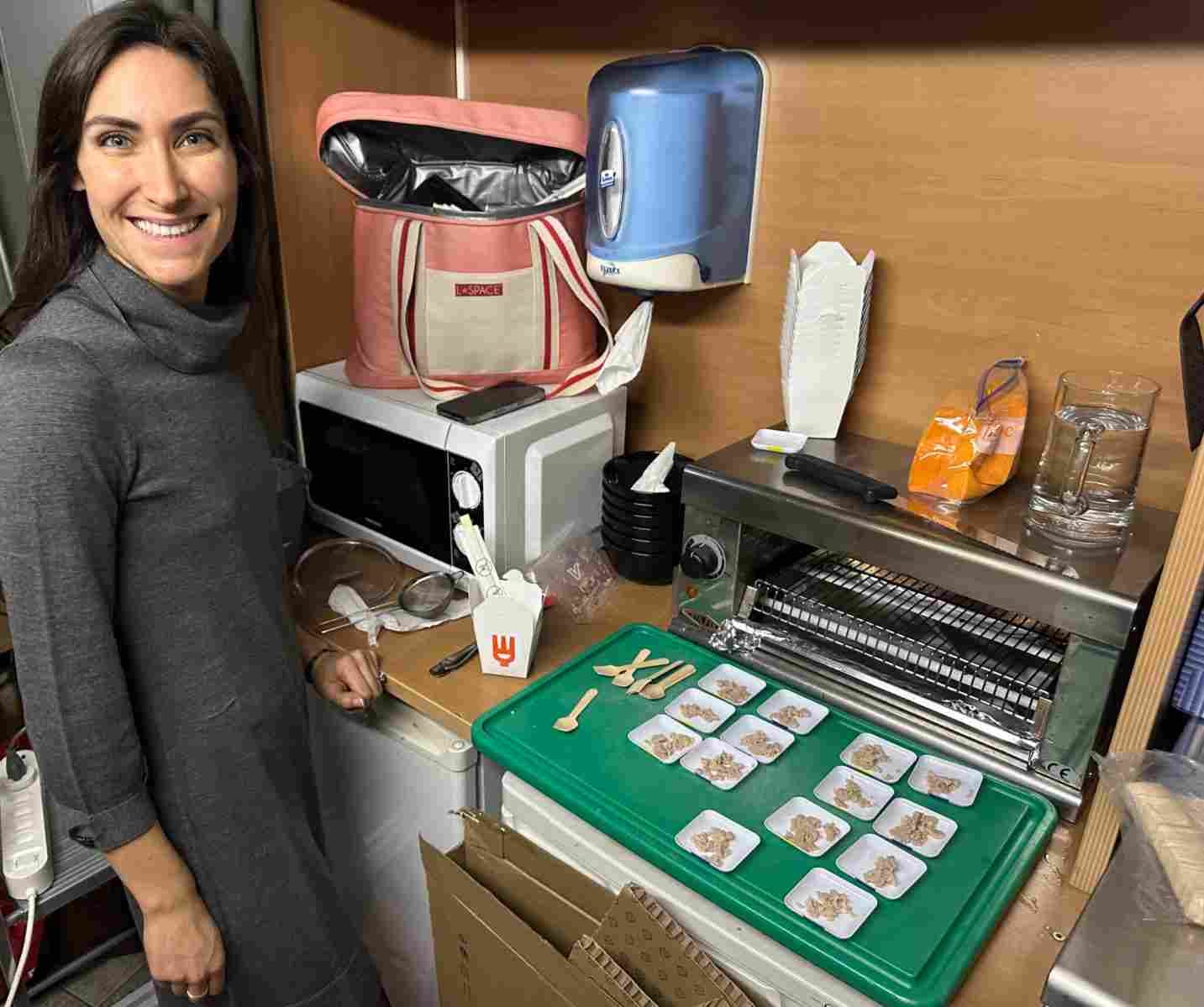
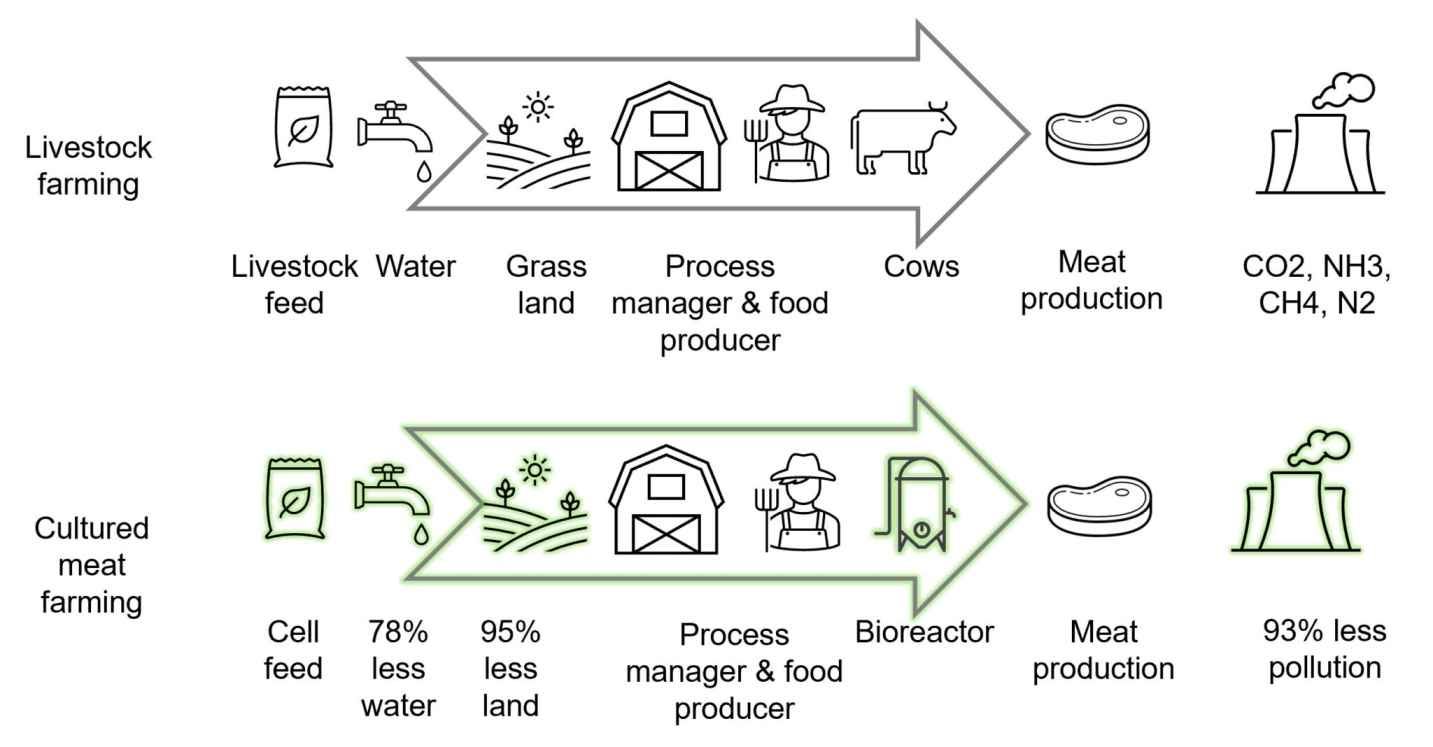
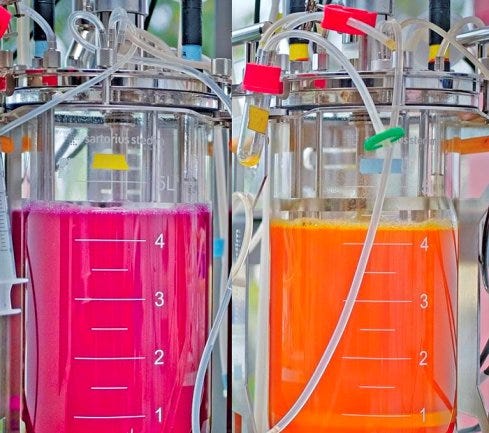
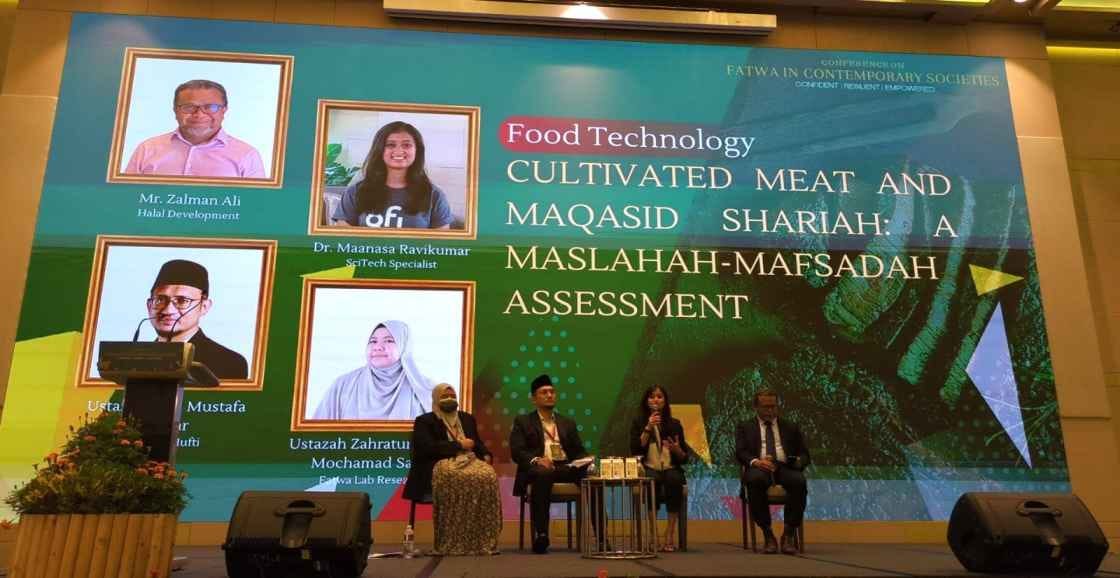
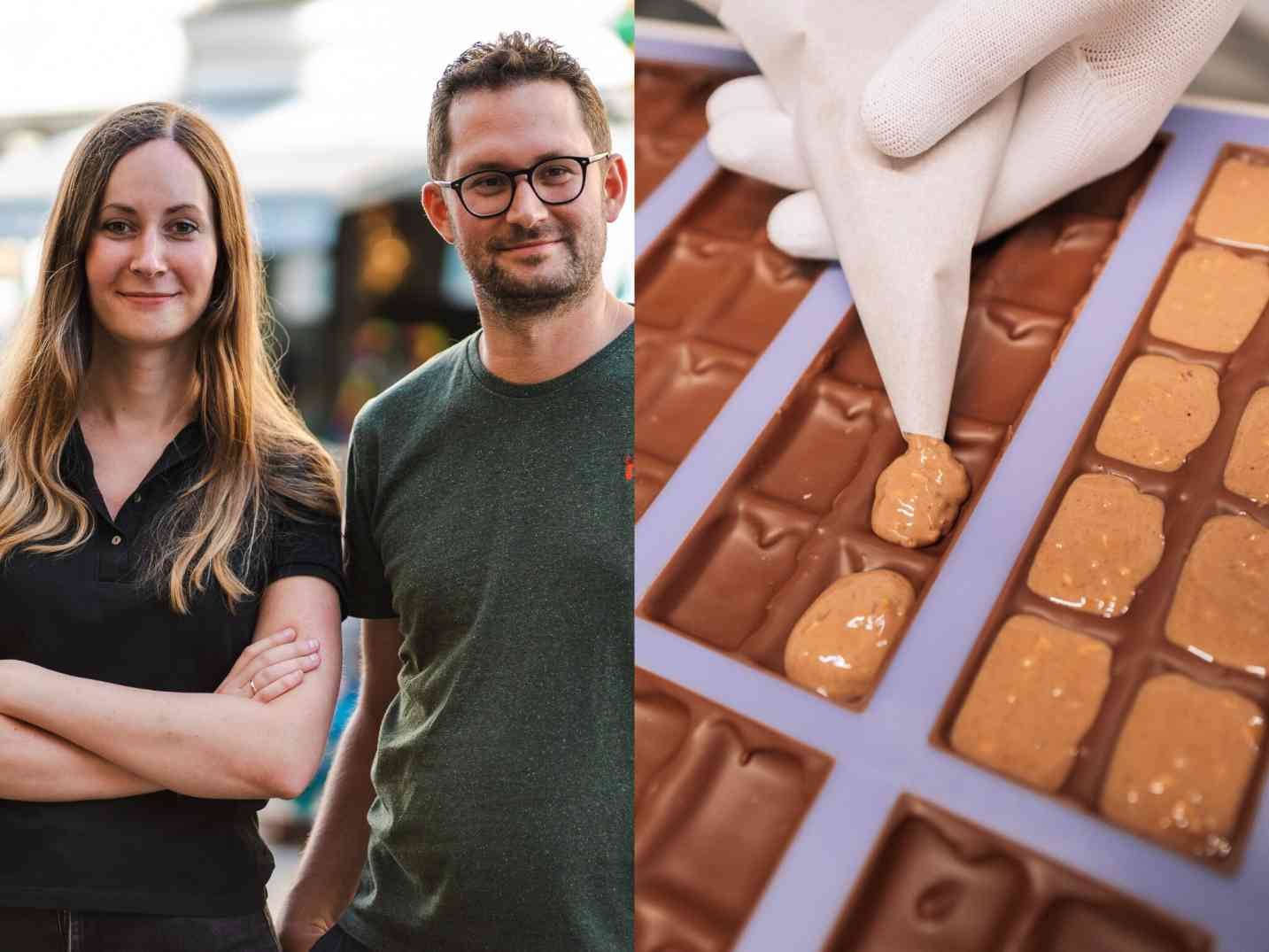




Happy bday! Can't thank u enough for all ur effort making this newsletter and making it easier for me to keep up